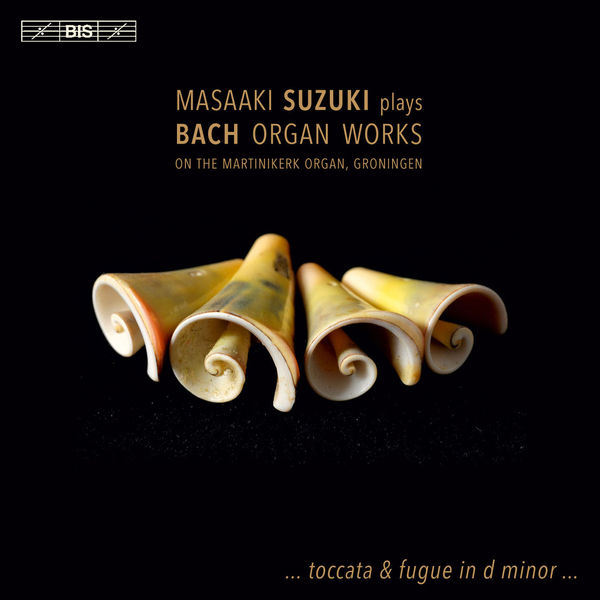Brahms’ Symphonies
As you can see from the subtitle of my blog, I’m a huge Brahms fan.
Unfortunately, I haven’t been that happy with most of the Brahms symphony cycles recorded in the last 30 years. To be fair, even more than for other composers, the legacy left by the glorious recordings of Furtwängler, Klemperer, Walter, and even Toscanini, made it not easy to do something better (except for the recording quality).
We’ve had some very modern light “HIP” approaches from Gardiner and Dausgaard, both of which I appreciate as they give a very fresh point of view, and benefit especially the lighter middle symphonies (I consider 1 & 4 the heavyweights).
But unfortunately, most of the recent complete symphony recordings didn’t impress me much (see also this post where I was desperately, and in vain, searching for a modern reference of the 1st symphony). The only box I like (and still, not for every symphony) is Riccardo Chailly’s cycle with the Gewandhaus, which takes a nice middle way between the heavy romantic recordings of the past and the HIP inspired gut-string recordings of today.
Andris Nelsons
I’m a big fan of Andris Nelsons since he took over the Boston Symphony Orchestra. I put his Shostakovich into my best albums for 2016. I even specifically mentioned in said blog post about Brahms 1 that I was hoping for a new reference recording to come from Nelsons and the BSO.
Well, my wishes have been heard. The BSO has recently released their first full Brahms cycle. And I must admit I initially didn’t plan on buying it. The album is not available for streaming on my favorite streaming provider (except for the 4th), and the 1st is so critical to me that I didn’t want to buy blindly.
Well, then the September 2017 issue of Gramophone comes out, and gives it an “Editor’s choice”. I haven’t always been in agreement with Gramophone recently (see my comments about the 2017 Gramophone awards), but an Editor’s choice still means something. Then I started googling and also found this excellent review by John Marks, formerly with Stereophile.
So there you had me. I bought the box blindly.
Brahms: The Symphonies – Andris Nelsons – Boston Symphony Orchestra (BSO Classics 2017)

So, what do you get?
Well, let me start by saying, if you like Brahms, you need to have this box. Nelsons takes the learnings from the great classics, mixes in the beautiful BSO sound, and brings a very beautiful Brahms style to life.
I’d call it Cinemascope, as you really see all the colors, on a very big screen. His approach is never rushed. You get to see all the fine details that Brahms managed so well.
Let’s talk about the individual symphonies, and let’s take them backwards.
Symphony No. 4
I’ve mentioned above that No. 4 is one of the two heavyweights for me. I particularly love the variations of the fourth. I’ve mentioned Nelsons taking it relatively slow. He takes 10:08 for this movement. This is not yet the 11:29 of a Bruno Walter, but also not the 9:35 of a John Eliot Gardiner, or even the 9:23 of a Chailly (interestingly, Furtwängler uses 9:47, starting slowly but accelerating over time, which works for me).
But, this music can take the tempo. There is so much going on in these fantastic variations, and Nelson lays it all out in front of you. And he keeps the power during the entire movement, which isn’t easy.
Symphony No. 3
Going one back to no. 3: here the heavier approach works, but not as well as for no. 4. It gives the famous Poco Allegretto (known from movies and commercials) an even more sentimental character. In some way this speed, with the tremolo of the violins, makes the quiet anti-climax of the ending sound like we’ve just moved directly into a Wagner opera.
Brahms wasn’t a particular fan of Wagner, but actually this shows that while they may have disagreed on structure, there are more similarities between the two than you’d think.
Symphony No. 2
Symphony no. 2 is sometimes considered Brahms’ Pastorale. And here is where I have my biggest problem with the slower tempo, it tends to take away some of the lightness of this music. Here I’d much rather have a Chailly or Gardiner. That said, it is still a beautiful recording.
Symphony No. 1
And now let’s move to symphony no. 1, my absolute favorite of the four (here’s why). And you’ve probably guessed it by now: Nelson’s style is just perfect for this romantic work.
My appreciation of any interpretation of this symphony is often already formed in the first seconds: the chromatic increased with the dramatic tympani needs to grab me immediately (as do Furtwängler and Klemperer), otherwise, I’m already lost. Nelsons takes a very special approach here, the tension is there but he doesn’t release it yet. Beautifully done. Movements 2 and 3 are nice, but basically just fillers between movements 1 and 4. The finale really summarizes what I love about Brahms. A lot of variation and developments (you never know what comes next), and then so outstandinly beautiful moments as the famous horn solo (at 2:56 for Nelsons), followed by the even more amazing melody of the cellos (at 5:12).
It is still a bit too early days, but this has the potential to become my new modern reference version of Brahms 1.
My rating: 5 stars.
I was hesitating a bit, as you’ve seen above that not all of the four performances are 5 stars to me (1 and 4 certainly are, 3 up to a point, 2 would “only” be 4 star), but this is overall a very convincing new reading of the Brahms classics. Check it out!


















